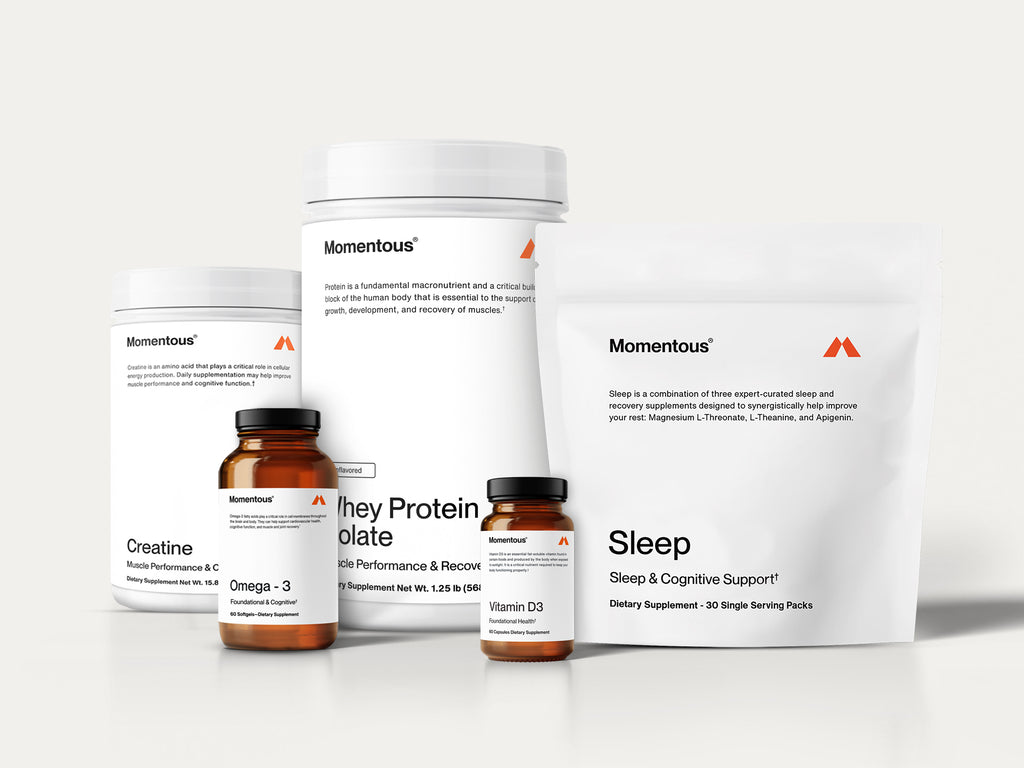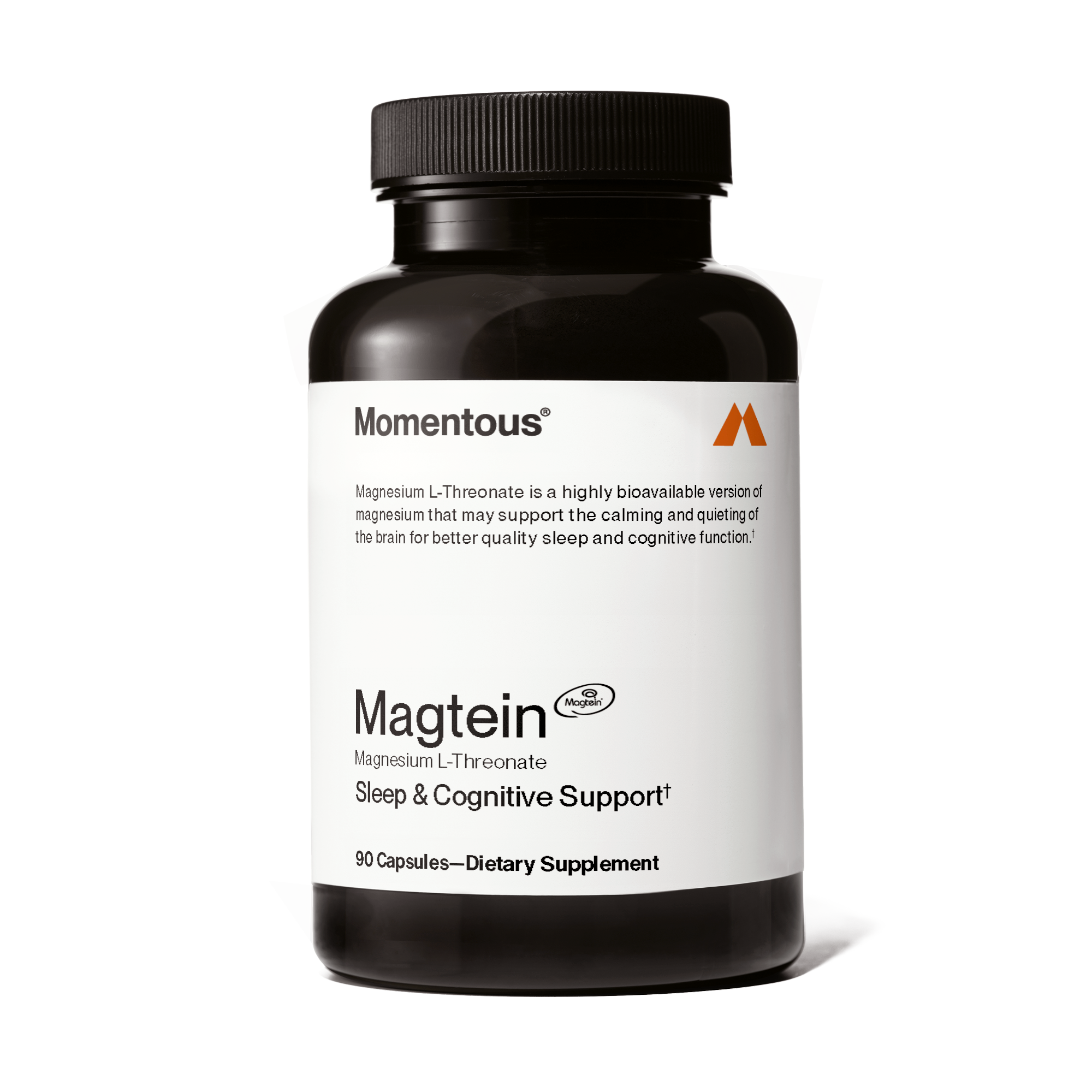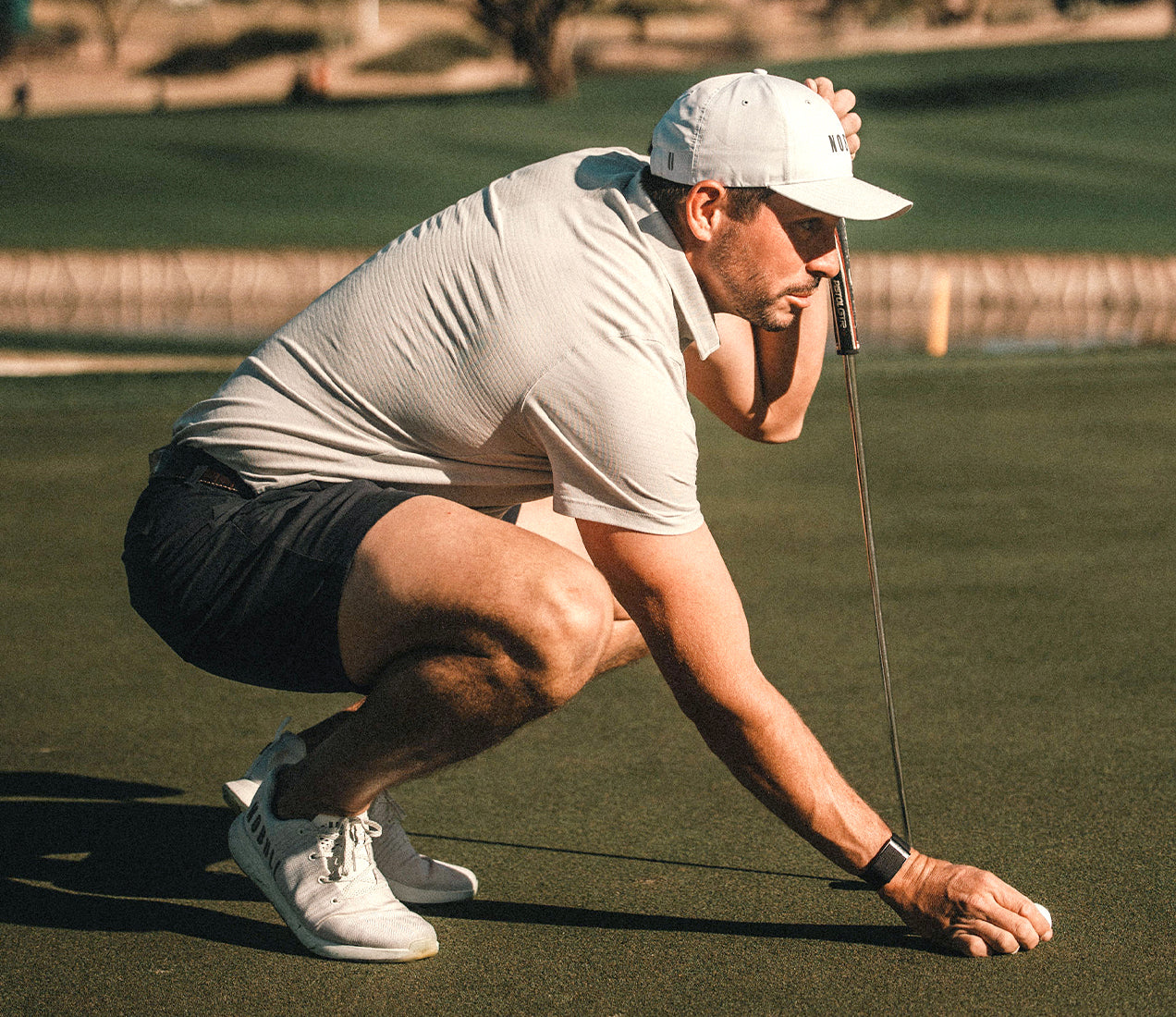Highly absorbable magnesium to support sleep, focus + brain health
If you’ve looked at the products we offer recently, you might be asking yourself “what’s up with all this magnesium?” It’s true, between Malate, Glycinate, and L-Threonate, it can be a little overwhelming to decide which is right for you. For some, you might even wonder why it’s important in the first place.
Magnesium is an important mineral for your body that is often overlooked. It supports many of the body's key functions, and all of these are especially important for those seeking high performance. According to the NIH, however, as many as 48% of Americans aren't getting enough in their diet alone. So, let's hit the books and learn about why magnesium matters.
Magnesium directly supports more than 300 enzymatic processes in the body, including healthy cardiac and lung function, bone density, muscle tenderness, and fatigue. It is also necessary for the body to convert vitamin D3 into its active form (25OHD) in support of bone health, immune system support, brain function, and sleep quality. While all of these functions are important, let's go a little deeper into each major area Magnesium can help you reach peak performance:
Heart Health - Magnesium is vital for maintaining a healthy heart; it helps stabilize the rhythm of the heart and plays a role in preventing abnormal blood clotting in the heart. Magnesium also helps maintain healthy blood pressure levels. For athletes, magnesium can help prevent heart arrhythmias and other cardiac problems that can impact performance.
Muscle Function - When magnesium levels are inadequate, your muscles may over contract, leading to symptoms like muscle spasms and cramping. Magnesium helps the muscle cell relax after these contractions, allowing athletes to maintain peak performance for more extended periods.
Bone Mineralization - Magnesium is vital for bones because it helps the body use Vitamin D. A positive association has been found between dietary magnesium intake and bone mineral density. Athletes need strong bones to help prevent injuries and withstand the impacts of training and competition.
Memory - Using magnesium L-threonate to increase brain magnesium levels has been shown to enhance the learning abilities, working memory, and short- and long-term memory in rats. Peak athletic performers need to access their memory quickly and accurately to make split-second decisions during competition.
Focus - Magnesium concentrations in the brain affect multiple biochemical processes involved in cognitive functions, including cell stability and integrity and NMDA-receptor response to stimuli. Athletes need to be able to focus and react quickly, so magnesium is an important mineral for them to maintain optimal cognitive function.
Sleep - Magnesium is a natural chemical that helps to block NMDA receptors and activate GABA receptors which produces a calming effect and may increase natural melatonin levels, helping to improve sleep. Deep sleep is crucial to high performance because it reduces stress, promotes tissue growth and repair, and improves your cognitive function.
Which Magnesium Type is Right for You?
Magnesium L-Threonate: We consider Magnesium Threonate to be the premium form of magnesium as it is shown to actually cross the blood brain barrier to improve memory, focus and sleep.
Magnesium Glycinate: Magnesium Glycinate is a great and less expensive alternative for those who don’t want to invest in Magnesium Threonate.
Magnesium Malate: If you want to increase your magnesium intake for athletic recovery, we recommend Magnesium Malate for muscle function.
As always, talk to your doctor first. They can help you determine the best type of magnesium for you and the correct dosage.










